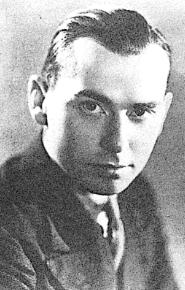अपराध पूंजीवादी जीवन की एकरसता और सुरक्षा भाव को तोड़ता है। इस तरह से वह इसे ठहराव का शिकार बनने से रोकता है और इसमें कठिन तनाव और चपलता पैदा करता है जिसके बिना प्रतियोगिता का डर भी कम पड जाता है। इस तरह वह उत्पादक शक्तियों को प्रेरित करता है। जहाँ अपराध श्रम के बाजार से अतिरिक्त आबादी के एक हिस्से को अपने साथ हटा लेता है और इस तरह मजदूरों के बीच प्रतियोगिता को कम करता है- उस निश्चित बिंदु तक ताकि मजदूरों के वेतन न्यूनतम से नीचे न गिरें- वहीं अपराध के विरुद्ध संघर्ष इस आबादी के एक दुसरे हिस्से को अपने भीतर शामिल कर लेता है। इस प्रकार अपराधी प्राकृतिक संतुलनकारी के रूप में सामने आता है और अनेक उपयोगी जरूरी पेशों के लिए रास्ता खोल देता है।
उत्पादक शक्तियों के विकास पर अपराध के प्रभाव को विस्तार से दिखाया जा सकता है। यदि चोर नहीं होते तो क्या कभी ताले अपने वर्तमान स्तर तक पहुँच पाते? यदि जालसाज न होते तो क्या बैंक नोटों की छपाई इस स्तर तक पहुँच पाती? यदि व्यापर धोखाधडी न होती तो क्या सामान्य व्यापार में सूक्ष्मदर्शियों का उपयोग संभव होता? क्या व्यावहारिक रसायन शास्त्र मालों में मिलावट के लिए आभारी नहीं है? अपराध संपत्ति पर लगातार नए-नए हमलों के जरिये सुरक्षा के नए-नए तरीकों की जरूरत पैदा करता है और इसीलिए उसी प्रकार उत्पादक है जैसे मशीनों के अविष्कार के लिए हडतालें। और यदि हम व्यक्तिगत अपराधों के दायरे को छोड दें तब भी क्या बिना राष्ट्रीय अपराधों के वैश्विक बाजार अस्तित्व में आया होता? बल्कि क्या राष्ट्र भी जन्मे होते?
-कार्ल मार्क्स
















